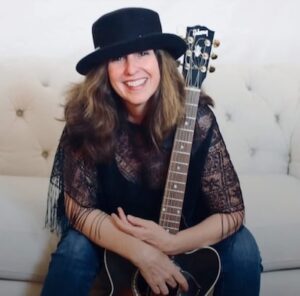In my small friend group, I know three families who have been torn apart by politics. Three sets of parents and adult children, where each parent or child seems to assume that their relative’s differing political views represent some sort of moral rot.
The weird thing is that all of the people involved are kind and decent human beings. Each one of them would give you the shirt off their back if you needed it. So why can’t they see this virtue in each other?
This problem isn’t unique to the families I described: a lot of us assume that a person’s politics dictate their values. According to a 2022 Pew poll, 72 percent of Republicans, and 63 percent of Democrats, say that “members of the other party are a lot / somewhat more immoral compared to other Americans.”
But is this true? I don’t think so. I think that instead of concluding that Americans of the other tribe don’t share our values, we could take a leaf out of Mónica Guzmán’s book. In I Never Thought Of It That Way, she draws on the research of Israeli social psychologist Shalom Schwartz, who argued that there are only ten human values: “stimulation, hedonism, achievement, power, benevolence, universalism, security, conformity, tradition, and self-direction.” As Mónica notes, all of us prioritize these values in different ways. And here’s the key: all of these values can be good in certain situations, but there are trade-offs between them. A conservative who wants to police the border isn’t indifferent to the plight of illegal immigrants (universalism), but they may value security and conformity more. A liberal who wants to open the border isn’t blind to concerns about security, but may value universalism more.
Or, to put it another way: we commit a grave error when we look at people across the aisle and “mistake a different ordering of values for an absence of the ones that [we]…think matter most.”
So what if we were willing to see the values underneath our opponents’ political positions? What if we were able to see them, not as indifferent to the values that we care about, but more accurately: as caring about the values we care about, but caring more about other equally-positive values?
This is hard…but I think most of us want to be seen this way. If I oppose defunding the police, I want my friends to see that stance in light of what I value highly (security, tradition, conformity). I also want them to see that I do value benevolence (i.e., I care about victims of police brutality), even if I don’t put that value above security. I certainly don’t want them to conclude that I’m just indifferent to police brutality.
So if we want to be seen this way…can we bring ourselves to see others this way? Can we bring ourselves to love others as we ourselves want to be loved?
If we can do that, it might do a lot to help us repair the relationships in our lives that have been frayed or broken over political differences.
It might even reduce the fear that sometimes feels like it’s suffocating our great nation. When he was asked how he could keep going in the face of people who tried to kill him and his family, Martin Luther King Jr. responded with a quote from the Bible: “Perfect love casts out fear.” He loved his allies and his enemies, and that love gave him the courage to not live in what many of us would consider to be well-justified fear. Perhaps if we each love each other a little better, we can reduce the fear that grips the country—not just in each other but in our own hearts as well.




